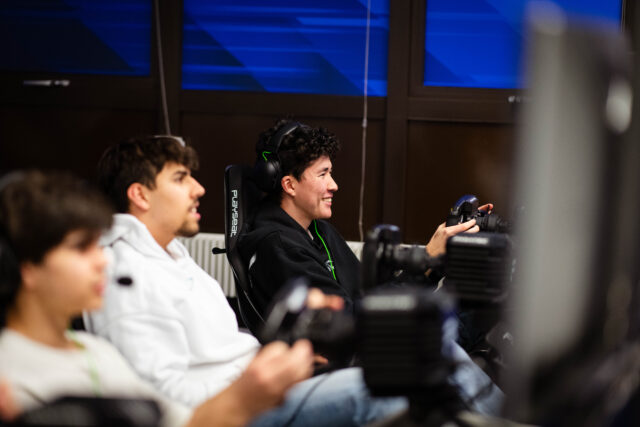24/04/2025
What It Means to Be a Future-Ready Student
Learning without Borders
In today’s rapidly evolving world, the skills our young people need to thrive have changed – and continue to change – faster than ever before. Education is no longer just about academic attainment or final exam scores; it’s about developing learners who are curious, adaptable, and prepared for a life of continuous growth.
The Shift: From Knowing to Thinking, From Local to Global
Parents often ask: “What should I teach my children to prepare them for tomorrow’s world?”
It’s a powerful question because tomorrow’s world is still being built.
Our students will enter industries that don’t yet exist, use technologies we haven’t imagined, and solve problems we can’t yet define. They will need more than knowledge. They’ll need empathy, collaboration, creativity, and the ability to adapt with confidence and care. As educators, our task is to create learning experiences that don’t just transfer information but build readiness for meaningful, resilient lives.
Future-ready Skills That Will Matter Most
At the recent Future-Ready Forum hosted at ACS Cobham, Applied Futurist Tom Cheesewright identified three essential skills that today’s students need to navigate an uncertain future:
1. Curation
In a world awash with information, being able to find, evaluate, and apply knowledge is vital. Whether in education or work, students must learn to identify gaps in their understanding and seek out reliable, meaningful insights, without falling prey to misinformation.
2. Creativity
Creativity isn’t just inspiration – it’s a discipline. It involves building, prototyping, testing, remixing, and refining. It’s about learning from failure and iterating toward improvement. In every field, creativity is the driver of innovation.
3. Communication
The ability to communicate clearly, persuasively, and authentically is more critical than ever. It’s not just about sharing ideas, but about connecting with others, across cultures, perspectives, and platforms.
These essential skills align with recent research from the UK’s SME sector, which shows that problem-solving, collaboration, and communication now rank above academic knowledge when hiring.
Human Skills in a High-Tech World
We often hear that the future will be driven by artificial intelligence. But what we don’t hear as often is this: the most successful humans in a tech-driven world will be those who remain human.
Emotional intelligence. Ethical reasoning. Imagination. Social connection. These are the traits that will define our place in the age of automation.
What This Means for Schools
So how can schools prepare young people for a world of AI, automation, and constant change? How do we help students develop both technical ability and emotional intelligence? How do we foster optimism, purpose, and global responsibility?
If we want to prepare students for the future, we have to teach in ways that mirror the future:
- Cross-disciplinary thinking
- Real-world, project-based learning
- Emotional resilience and self-awareness
- Active global citizenship
This is where frameworks like the International Baccalaureate (IB) come in. While many are familiar with A-Levels, the IB’s holistic approach offers an interesting contrast:
- Broader subject requirements
- Emphasis on personal growth through creativity, service, and inquiry
- Reflection on how knowledge is constructed, through Theory of Knowledge
- Independent research through the Extended Essay
- Active engagement in real-life contexts via CAS (Creativity, Activity, Service)
It’s a curriculum designed not just to prepare students for university, but for life in a connected, complex, global society.
University Is Changing
The way students apply to university is evolving. It’s no longer just about top marks in isolated subjects. Admissions officers are increasingly looking for students who show:
- Breadth of experience
- Original thinking
- Global perspective
- Clear motivation and self-direction
A student’s ability to connect their learning across subjects, to demonstrate curiosity through research, or to lead a community project can often set them apart more than a list of grades.
What Does It Mean to Be Future-Ready?
Future-ready isn’t about predicting the future perfectly. It’s about preparing young people to be resilient, open-minded, and motivated to keep learning no matter what the world throws at them.
It’s about learning without borders – both in the classroom and in mindset.
Whether we’re educators, parents, employers or policymakers, we all share responsibility for shaping the environments where these qualities can thrive.





